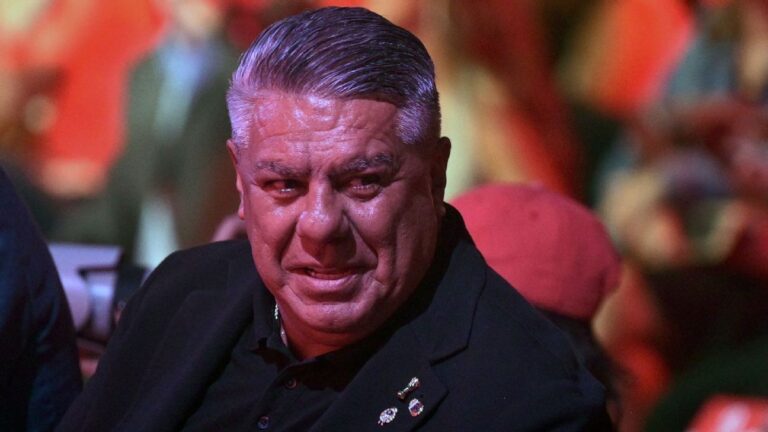Copa América, South America’s continental competition, has kicked off in the United States for the second time after it hosted in 2016. There are plenty of storylines, from World Cup champions Lionel Messi and Argentina defending their title, the USMNT using this as a warmup for the 2026 World Cup which it will co-host, and Brazil looking to rediscover their form.
As we prepare for the next few weeks of packed action from the Americas, let’s dive deeper into some of things that we can look forward to, including the rivalries, star and key players and why this particular edition comes with multiple talking points.
On Monday, Messi will turn 37. It’s no secret that he is in the final chapter of his illustrious career. In an interview with ESPN, the Argentine talisman said Inter Miami will be the last club he plays for. Copa América is the chance to win a third straight major title with Argentina and create more memories with the national team after winning the 2021 Copa and the 2022 World Cup in Qatar.
But will it also be his curtain call on the international stage in a major tournament? Who knows.
In fact, Messi himself is unsure of the future, which includes his participation in the next World Cup. “It depends on how I feel, how I am physically and being realistic with myself,” he said in an interview with Infobae. “And to know if I am up to the task of being able to compete and help the teammates next to me.”
Speaking on defending the Copa title, Messi said “It’s going to get harder and harder for us — nothing is going to be easy for us,” Messi said last week. “But we’re going to try again.”
He’s right. It won’t be easy, because the obstacles are no longer coming just from Brazil. That was showcased by their opening 2-0 win against a tricky Canada side. And as World Cup qualifiers have shown, CONMEBOL’s hierarchy is changing.
Marcelo Bielsa’s Uruguay is energetic, resilient and fully carrying the embodiment of Garra Charrúa, the country’s tenacious, warriorlike spirit. And what about Colombia? After missing the World Cup in Qatar, there has been a transformation with Los Cafeteros. This is a skillful, brave, adventurous Colombian squad mixed with experience and youth, but thanks to head coach Nestor Lorenzo, they are now extremely organized and disciplined. They will be a force to be reckoned with.
That said, Messi & Co. enter as favorites and in terms of squad selection, head coach Lionel Scaloni has not rocked the boat — 21 out of 26 players were in Qatar in 2022. But the new additions, which include teenagers Manchester United’s Alejandro Garnacho and Inter’s Valentín Carboni (on loan at Monza), show that Scaloni is ready to think of the future.
Argentina might be clear favorites, but there are plenty of teams that can deliver an upset. Their group includes Canada, Peru and Chile — two nations that have a rivalry deeply rooted in political and cultural turmoil and on the pitch it all comes out. Named as the Clásico del Pacífico, it is usually played with a tremendous amount of aggression. The particular matchup on Friday will be even more intriguing as Chile’s new manager is Ricardo Gareca, Perú’s former manager who took the team to the World Cup in 2018 for the first time in 36 years. Now, someone who was adored by all Peruvians, manages their fiercest rivals.
Group D (Brazil, Colombia, Paraguay and Costa Rica) is intriguing. As mentioned earlier, Vinicius Jr and Brazil know that there is much to do if the World Cup qualifiers are anything to go by.
New coach Dorival Júnior arrived in January, but there are doubts whether this Brazilian side can reclaim their dominance in South America. La Seleçao is going to have a difficult time from the get-go because winning the group might be an obstacle. And here’s where I return to Colombia, who have not lost a game since manager Nestor Lorenzo returned to the national team.
In fact, Los Cafeteros have not lost in 23 games. Lorenzo was Jose Pekerman’s assistant between 2014 and 2018, when Colombia also earned a third-place finish at the Centenario. But now, Lorenzo is the man in charge and this team is the real deal. They have already beaten Brazil in World Cup qualifiers (their first victory against them in a qualifying campaign) as well as friendly victories over Germany and Spain. Most recently, they embarrassed the U.S. 5-1 and this is not an exaggeration: they have all the tools to finally win a Copa América title for the first time since 2001, which is their only one to date.
James Rodríguez, at 32, is still influential due to his creativity. But this side is so much more than that. From Liverpool’s Luis Díaz to Fluminense’s Jhon Arias, Colombia have flair, poise and defensive strength. The game against Brazil in Santa Clara on July 2nd, the final one of the group, should be an extremely tasty, electric affair.
Speaking of electricity, how about Uruguay? Under Marcelo Bielsa, La Celeste are a force of nature. They are second in qualifiers, having scored 13 goals — more than anyone — and four victories, which include 2-0 wins against Argentina and Brazil.
Uruguay has talent to spare, like Nico de la Cruz from Flamengo. Under Bielsa, he is an important part when they go forward. Inter Miami’s Luis Suárez also returns, ready to make his fifth Copa América. In addition, Liverpool’s Darwin Núñez has been wonderful under Bielsa, most recently scoring a hat trick in a 4-0 friendly win over Mexico, a game where they didn’t even break a sweat.
Uruguay don’t care about possession or how they build up play. They are not pretentious about their game plan. It’s about mental and physical control and so far, they are delivering. Opponents in their group, which includes the USMNT, should be very worried.
The entertainment doesn’t stop there as teams such as Ecuador, Paraguay and Chile will be interesting to watch due to their transitional situation. Bolívia and Peru are also hoping to change their fortunes from World Cup qualifiers.
Finally, please pay a lot of attention to Venezuela. They have been wonderful in their qualifying campaign (fourth, and on the road to making their first World Cup appearance) and Fernando Batista has them organized and playing disciplined, brave football.
As the United States embraces once again the impact and arrival of Copa América, there is a strong reminder that due to the level of talent, the multifaceted storylines and the fan energy that comes from the Latin American diaspora, this particular edition promises to be a showcase of the highest level.




